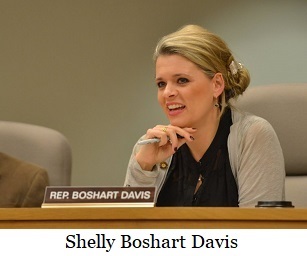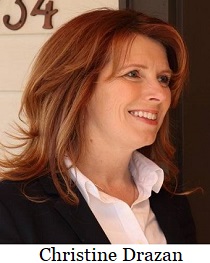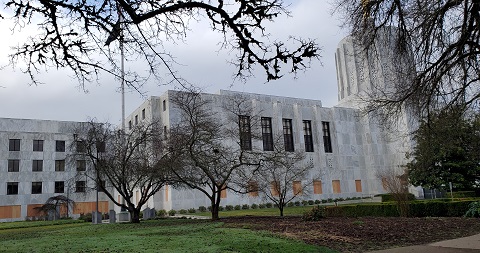
On this day, August 20, 2020, about 100 leftist demonstrators blocked traffic in Portland, vandalized an immigration building, set fires to dumpsters, and threw rocks and glass bottles at police. Police arrested three people.
 Post an Event
Post an Event
| Benton County Republicans’ Private Fundraising Event, “Bent-on Boots and Bling” with Trey Taylor |
| Friday, September 5, 2025 at 5:00 pm |
| Featuring Trey Taylor
Music Private Event
Friday, September 5, 2025 5:00-5:30 pm VIP Reception
5:30-8:00 pm Heavy Appetizers,
Auction, Concert
Red: $750 VIP Reception
Front Row Table Sponsor
White: $500 Table Sponsor
Blue: $50 per person
Limited Seating. Get Yours Now!!!
Support Local
Dress up: Bling, Cowboy, Patriotic Benton County Republican
FUNDRAISER
www.BentonGOP.org
Get your tickets today at:
https://www.bentongop.org/event-details/benton-county-republicans-fundraiser/form
About Trey:
Trey is the youngest African American Man in Country Music History. The Denver Post wrote
"It's impossible to miss his enthusiasm. With a fondness for cowboy boots, gaudy colors and dazzling jewelry, Trey Taylor could stand toe to toe with any of the Pop, Country or even Rap
contemporaries of his generation.“ |
| Trysting Tree Golf Club, 34028 NE Electric Rd., Corvallis |
Corporations will be required to file the diversity information with the Oregon Secretary of State
HB 3110 would force publicly traded corporations based in Oregon, to change the makeup of their board of directors to meet new requirements. The bill has been introduced by Representatives Karin Power (D-Portland) and Janelle Bynum (D-Portland) and Senator Deb Patterson (D-Salem).
“Requires board of directors of publicly traded corporation to have specified proportion of female directors and directors who are members of underrepresented communitiesâ€.
Also, a female board member cannot also represent the other position representing underrepresented community. In other words, an individual who identifies as African American and identifies as a female, cannot meet the legislative requirement for both categories under
HB 3110 rules.
The corporations will be required to file the diversity information with the Oregon Secretary of State annually. If they do not, they will be subject to a $100,000 fine. In addition, if the new diversity seats on the board are vacant for an 8-month period, they will be fined $100,000 for each seat vacant. Subsequent violations will be in the amount of $300,000 per violation.
The bill gives publicly traded companies until January 1, 2022 to fill these seats and fines will start to be implemented January 1, 2023.
Oregon has many corporations that started out as family businesses, sole proprietorships or partnerships that are now publicly traded companies. Several of them have legacy family members that sit on the Board of Directors. Other board of director members often include COE’ of other companies, experts in their field related to the business sector or past executives of the company. In looking at some of the larger ones based in Oregon there is Nike, Inc., Precision Castparts, Corp., Columbia Sportswear and even Willamette Valley Vineyards. They cover a gamut of industries and have presence in the domestic and world markets. Should these companies be required to elect board members based on anything other than their ability to manage and make the company and its shareholders increased returns on their investments?
--Terese Humboldt| Post Date: 2021-02-02 17:52:21 | Last Update: 2021-02-02 20:36:37 |
Mandated via Public Health Director Banks
The State of Oregon now requires health benefit plans in Oregon to cover costs of vaccination for COVID-19, following an order by state Public Health Director Rachael Banks.
The Jan. 27 determination cites
Oregon Revised Statute 743A.264 (2) and (3) in mandating that private health plans operating in Oregon not charge patients for most costs related to providing the vaccine. That includes the cost of all doses of the vaccine and associated supplies, and expenses for administering the shot, such as those related to staff time.
The Oregon Health Plan and Medicare programs supposedly do not charge patients for costs of vaccinations.
“We are in the midst of a devastating pandemic that has affected more than 142,000 people in Oregon and claimed almost 2,000 lives,†Banks said. “There should be no financial barrier to getting the vaccine, whether it’s a copay or administrative fee. Even small costs can be a big burden for people with limited resources, particularly considering the economic challenges people have faced for the last year.â€
A D V E R T I S E M E N T

A D V E R T I S E M E N T
She said she encourages providers to bill patients’ insurance for any vaccination costs and avoid asking or expecting patients to cover vaccine administration costs.
In her order, Banks points to “two safe and effective COVID-19 vaccines that are currently approved by the U.S. Food and Drug Administration (FDA) under Emergency Use Authorization.†Both vaccines — one made by Pfizer-BioNTech, the other by Moderna — “are currently available to eligible individuals in Oregon. More COVID-19 vaccines may become available following clinical trials and approval by the FDA.â€
Therefore, the order continues, “having determined there exists a disease outbreak and that vaccination is necessary to prevent the spread of COVID-19, the cost of vaccination for COVID-19 shall be covered by insurance …â€
--Bruce Armstrong| Post Date: 2021-02-02 12:12:15 | Last Update: 2021-02-02 17:54:52 |
Will provide better forest management
America’s national forests need our help. Our public lands are burning at an alarming rate and need forest management to reduce the risks of devastating wildfire, insect infestations and disease. In 2020 alone, over 4.9 million acres burned on U.S. Forest Service-protected lands. That’s nearly the size of Delaware and Connecticut, combined.
To protect our communities, wildlife habitat, recreation, clean air and water, the federal government must allow its professional land managers to do their jobs. Help is on the way. The U.S. Fish and Wildlife Service has proposed a new rule that will limit frivolous lawsuits that seek to block projects designed to reduce the risks to our forests.
What does this new rule do? It provides relief from harmful anti-forestry lawsuits that have blocked efforts to thin overstocked forests and reduce fuels that are contributing to these devastating fires. This solution is bipartisan. It reflects efforts by both Democratic and Republican administrations and members of the U.S. Congress to resolve lawsuits over duplicative interagency consultation procedures that have prevented work from being done on public lands.
Public comments on the rule are due by February 11.
--Staff Reports| Post Date: 2021-02-02 10:36:24 | |
Delay in census data is causing a crunch
As the federal government census data appears to be behind schedule, throwing a wrench into conversations surrounding redistricting, Republican members of the House and Senate redistricting committees are strongly advocating for a transparent and nonpartisan approach to redistricting. Republicans are asking Democratic leaders to honor the spirit and intent of the law in the committee’s approach to redistricting, and to commit to a transparent process that allows members of the public and historically marginalized communities a fair opportunity to provide their input.
Every ten years, the State of Oregon is required to redraw its Congressional, State Senate and State House districts, based on data provided by the federal census.
“The redrawing our state’s political boundaries is one of the most important duties the Legislature has,†said Representative Shelly Boshart Davis (R-Albany), who serves as Vice-Chair of the House Special Committee on Redistricting. “Unfortunately, as we have seen in other states, this process can often be hijacked by partisan interests and result in gerrymandered maps that unfairly benefit one party over another. It doesn’t have to be that way here in Oregon. I urge my Democratic colleagues to commit to a fair process that provides equal input from members of both parties and guarantees that the public has a meaningful and substantive say in how maps are drawn.â€
ORS 188.010 requires each district to be contiguous, be of equal population, utilize existing geographic or political boundaries, not divide communities of common interest; and be connected by transportation links. Furthermore, no district shall be drawn for the purpose of favoring any political party, incumbent legislator or other person.
Republican lawmakers are also urging Democratic leaders to commit to a fair, constitutionally compliant and transparent process and one that also includes input and active participation from historically marginalized and rural communities.
Senator Tim Knopp (R-Bend) who serves as Vice-Chair of the Senate Special Committee on Redistricting added “Every legislator must commit to redistricting integrity by engaging with these communities, ensure that they have access and actively participate in this process, and ultimately produce fair maps that promote inclusiveness in our political system.â€

We need to end gerrymandering in America. Secretary of State Shemia Fagan signed a pledge to end gerrymandering as a tool to manipulate electoral districts to benefit political parties instead of voters. Republican members of the House and Senate redistricting committees couldn’t agree more.
The Oregon 2021 Legislative Session officially began on January 21, 2021. The Legislature is required by the Oregon Constitution to produce new maps by July 1. In the event the Legislature fails to do so, the duty of reapportionment falls to the Oregon Secretary of State, Shemia Fagan. Were the Secretary of State be unable to complete redistricting by August 15, Congressional Districts redistricting falls to the Federal Courts.
--Staff Reports| Post Date: 2021-02-02 10:16:15 | Last Update: 2021-02-02 10:44:34 |
Will oversee drug treatment in Oregon
The Oregon Health Authority has announced the appointment of 21 members to serve on a new Oversight and Accountability Council (OAC) to oversee the implementation of Measure 110, the Drug Treatment and Recovery Act.
“Out of nearly 200 applicants, we found 21 experienced individuals who truly represent the diverse populations who will benefit the most from the passing of this Act,†said OHA Director Pat Allen.
Oregon voters passed Measure 110 in November 2020. The measure changes multiple criminal sentencing laws regulating the possession of controlled substances.
The measure creates a Treatment and Recovery Services fund, financed with marijuana revenues, that will supposedly cover the cost of 15 new Addiction Recovery Centers (ARCs) and wraparound services. The measure also required OHA to form the Oversight and Accountability council to implement a plan to establish the ARCs and administer the fund. Finally, OHA was required to create a temporary ARC in the form of a 24/7 hotline.
The measure required OHA to stand up both the Oversight and Accountability Council and the temporary ARC hotline by Feb. 1, 2021.
The 24/7 temporary, statewide ARC hotline went live Monday, Feb. 1, 2021 and will be in operation until regional centers are in place. Beginning Feb. 1, 2021, law enforcement officers may give the hotline number to people in possession of controlled substances, Some individuals may also receive a $100 citation. Individuals may call the hotline and complete the health assessment process, as outlined in the measure, and they will receive a letter of verification to present to the court to have the $100 fee waived.
“We are proud of the fact that we met these requirements on time...†said OHA Behavioral Health Director Steve Allen.
/
A D V E R T I S E M E N T

A D V E R T I S E M E N T
The Oversight and Accountability Council will have its first meeting in late February to begin planning for services required in the measure.
Oversight and Accountability Council members
- Melinda Bell, Lead Case Manager, Union Gospel Mission
- O'Nesha Christine Cochran, Lead, Brown Hope
- Caroline Martinez Cruz, Health & Human Services General Manager, Confederated Tribes of Warm Springs
- LaKeesha Dumas, Office of Consumer Engagement Coordinator, Multnomah County Addictions and Mental Health Department
- Sabrina Flint Garcia, Certified Recovery Mentor, Traditional Health Worker, Peer Recovery Initiated in Medical Establishments
- Morgan Godvin, Commissioner, Alcohol and Drug Policy Commission, Research Associate, Health in Justice Action Center
- Makeda M. Jensen, Member at large
- Chair Cheryle A. Kennedy, Tribal Council Chairwoman, Confederated Tribes of Grand Ronde
- Hubert Benny Mathews, Jr., Member at large
- Dharma Leria Mirza, Equity and Justice Fellow, Association for Recovery in Higher Education
- Amy Madrigal, Crisis Center Manager, COPES Clinic
- Zebuli Payne, Clinical Director, Phoenix Wellness Center
- Eowyn Rieke, MD MPH, Services Director, Blackburn Center, Central City Concern
- Henri M. Shields-Lucero, LCSW, CADCIII, Clinical Supervisor, Garlington Center
- Nicole Elizabeth Silva, Social Worker
- Blue Valentine, Harm Reduction Service Provider
- Carlos Vazquez, Adolescent Residential Counselor, The Yes House Milestones
- Leticia Parra Welch, Certified Recovery Mentor, Addiction Recovery Center
- Karen Wheeler, Chief Executive Officer, Greater Oregon Behavioral Health, Inc.
- Ronald Eugene Williams, Community Organizer
- Lelia Winnie, Director, Adult Residential Programs, De Paul Treatment Centers
--Bruce Armstrong
| Post Date: 2021-02-01 15:23:18 | Last Update: 2021-02-01 17:46:51 |
HB 2475 is sponsored by Democrat Karin Power
Oregon
House Bill 2475 may soon force on public utilities another set of social criteria to consider when setting energy price rates.
The bill reportedly will:
Authorize Public Utility Commission to consider differential energy burden and other inequities of affordability in rates. It would authorize public utilities to enter into agreements to provide financial assistance for organizations to represent in regulatory proceedings before commission interests of low-income residential customers and residential customers that are members of environmental justice communities.
A D V E R T I S E M E N T

A D V E R T I S E M E N T
What exactly is an "environmental justice community"?
Language in the bill defines it as follows:
“Environmental justice communities†includes communities of color, communities experiencing lower incomes, tribal communities, rural communities, coastal communities, communities with limited infrastructure and other communities traditionally underrepresented in public processes and adversely harmed by environmental and health hazards, including but not limited to seniors, youth and persons with disabilities.
Government meddling in the power market in such a way might not have the most desirable results, however. It may likely be in the best interests of utilities to avoid focusing on particular groups, so defined, perhaps unless such group comprises the entirety of a service area.
--Bruce Armstrong| Post Date: 2021-02-01 14:53:17 | Last Update: 2021-02-01 15:23:18 |
The people deserve transparency
Republicans in Oregon are speaking up about manipulative tactics that are being used by the state's Governor Kate Brown and the Oregon Health Authority in regards to releasing information about coronavirus data.
Oregon House Republican Leader Christine Drazan (R-Canby) has issued a statement in response to the Oregon Health Authority’s decision to limit the release of critical COVID-19 information.
“Yesterday, the Oregon Health Authority announced suddenly that the agency would no
longer publicize key information related to COVID-19 deaths in Oregon. This
information has been released daily for months without incident and is critical to
allowing the public to understand how and who the virus is impacting.
“Oregonians have been asked to sacrifice so much in so many ways, they deserve access
to all relevant available information.
“The decision to suspend access to key information calls into question the Governor’s
commitment to transparency and accountability at a time when state-level decisions
have made Oregon a national outlier by ignoring CDC guidelines and dismissing a
science-based approach to vaccine distribution. In order to maintain trust and preserve
transparency, Governor Brown and OHA must reverse yesterday’s decision and commit
to providing clear, consistent and timely data in all categories moving forward."
--Bruce Armstrong| Post Date: 2021-01-31 15:10:15 | Last Update: 2021-01-31 19:10:31 |
Democrats seek to ban unregistered guns with hefty fines
In the Oregon Senate, Senator Floyd Prozanski (D-Eugene) and Senator James Manning Jr. (D-Eugene) are chief sponsors for
SB 396, a bill which "punishes manufacturing, importing, offering for sale or transferring undetectable firearm." If passed, this bill will decimate the part of the firearm industry that manufactures and sells undocumented receivers and lowers -- the basic working parts of firearms -- in the state of Oregon. Gun enthusiasts, hobbyists, and people who want to keep their anonymity, use these parts to assemble firearms that do not have serial numbers, therefore the state or federal government has no way of knowing these products exist. The term for these unlisted firearms is “ghost guns.â€
Many American citizens want to maintain their privacy and personal business from the intrusive and sometimes abusive eye of authority. From the British Arms Embargo of 1775 to the Brady Bill of 1993, or the Federal Assault Weapons Ban of 1994, Americans have a reason to be fearful of government and its ability to deny citizens their rights.
SB 396 defines “undetectable firearms,†“untraceable firearms,†and “unfinished frames or receivers,†then it imposes new punishments and fines for owning, producing, selling, or transferring these types of products.
If enacted, anyone who manufactures, imports, sells, or transfers an “undetectable firearm†could receive a maximum of 10 years in prison or a $250,000 fine or both. Anyone in possession of an “undetectable firearm†could receive 364 days in prison, a fine of $6, 250, or both. Anyone who manufactures, imports, possesses, sells, or transfers an “untraceable firearm†could receive a maximum of 10 years in prison, a fine of $250,000, or both.
SB 396 requires a gun dealer to conduct a criminal background check before the transfer of an “unfinished frame or receiver.†Anyone importing, selling, or transferring an “unfinished receiver†could receive a maximum of 10 years in prison, a fine of $250,000, or both.
A D V E R T I S E M E N T

A D V E R T I S E M E N T
There are even some special exceptions in the bill so that anyone who possesses an unserialized unfinished frame or receiver could receive a maximum of five years in prison, a fine of $125,000, or both. It provides that anyone in the possession of an unfinished frame or receiver who commits a crime could receive a maximum of 364 days in prison, a fine of $6,250, or both. It would also prohibit them from the Right of possessing firearms. These are pretty stiff penalties for not having a serial number registered with the government.
Information is power and those who defend the right to own an untraceable firearm contend that a government database or registry of firearms would be used as a powerful weapon against citizens, were the government ever to want to confiscate firearms -- something that has happened several times in history -- leading to loss of freedom. This bill is just the latest skirmish in the battle for Second Amendment rights.
--Rob Taylor| Post Date: 2021-01-31 11:04:08 | Last Update: 2021-01-31 11:32:54 |
Employers are not medical professionals
Governor Kate Brown eased her lockdown on gyms and recreation. Stores providing food have never been shutdown and, at worst, were limited to 75% capacity, which is technically no limit. But, they have been empowered to protect their business through intimidation, threats, bullying, and physical blockage to keep customers from entering a store if not wearing a mask.
Such was the case last week when Northwest Observer was notified of threats at the Albany Wal-Mart. When Loma Wharton approached the store, a male employee followed her into the store while calling a “Front End Manager†who informed her that if she did not put a mask on, she would call the police.
Wharton has health issues, and she is fully aware that the Oregon Health Authority guidelines say she should not be made to wear a mask. “If you have a medical condition that makes it hard to breathe or a disability that prevents you from wearing a mask, you can request an accommodation from the business or venue or transit authority.â€
Wharton researched her rights and was prepared for any business questioning her. She stopped at the entrance and filled out a document she brought with her. The document reads:
“There is no law in Oregon, State, County, or City that requires citizens to wear a mask either in public or in business establishments, nor is there a regulation to require employees or patrons of those establishments to wear a mask.†All that exists is an edict from the Governor of Oregon, who has no authority over any of these matters. See the following:
American Federation of State, County, and Municipal Employees v. Olson, 338 N.W.2d 97 (N.D. 1983): “It is well settled that public officials have only such authority as is expressly given them by the constitution and statutes together with those powers and duties which are necessarily implied from the express grant of authority,†338 N.W.2d, at 100.
In re Benny, 29 B.R. 754, 762 (N.D. Cal. 1983): “[A]m unlawful or unauthorized exercise of power does not become legitimated or authorized by reason of habitude.â€
An Oregon Revised Statute does exist that prohibits public businesses from discriminating against those who do not wear a mask. I suggest you read ORS 659A.142. “Discrimination against individual with disability by employment agency, labor organization, place of public accommodation or state government prohibited.â€
Employers are not law enforcement agents and have no authority to act as such.
Employers are not medical professionals and have no authority to administer a medical examination or give medical advice, including advice to wear a mask.
If a public business, in the case Wal-Mart refuses entry into its facility for not wearing a mask for health reasons, they are in violation of the Oregon Constitution, which protects free movement against false imprisonment.
No Business is required to comply with a policy that violates Oregon law or my Rights guaranteed under the Oregon Constitution.
Laws are created by legislative bodies such as Congress or the Oregon State Legislature, not Governor Brown. Governors and mayors cannot enact laws. Their executive orders are binding only on government employees and contractors under their jurisdiction.
Wharton attempted to hand the signed document to the Front End Manager, but she refused to take it claiming to be a private company. The Front End Manager didn’t ask her to leave the store, but was threatening. If the police had come, her plan was to site their violation of ORS 659A.142, discrimination against individual with disability by place of public accommodation by forcing her to wear a mask or arrest her.
Wharton has since sent the document to Paul Redman, Wal-Mart Store Manager, relaying the incident and her restraint from entering the store, which forced her to wait in the car for family to do her shopping. She said, “It is obvious Wal-Mart does not know Oregon Laws and puts their employees, and Wal-Mart itself at great risk for being sued by enforcing an unlawful unconstitutional edict from Governor Brown.â€
The Oregon State Legislature has introduced fifteen bills protecting the rights of the disabled, but none address the mistreatment that disabled people are reporting - keeping them out of public places for failure to wear masks.
--Donna Bleiler| Post Date: 2021-01-30 18:34:50 | Last Update: 2021-01-30 19:24:10 |
But, it’s, like, still open.
The controversial decision to close the Capitol during the 2021 legislative session has been questioned by some lawmakers since the beginning of the session. Legislative leadership, in the hands of Democrats has been unwilling to let the public in the building, a decision which some have noted, has the effect of letting them make laws without having to actually face the citizens of the State.
Indeed, Representative Mike Nearman (R-Independence) is under fire for exiting a door, which allegedly permitted several people to temporarily enter the Capitol, leading to safety measures being imposed on him and restricting his ability to enter the building.
In light of these restrictions, State Representative Mark Owens (R-Crane) asked for a legal
opinion from Legislative Counsel -- the official lawyers for the Legislative Branch -- on the question of the legality of closing the Capitol. In their analysis, Legislative Counsel offered a decision based in part on their understanding of how the disease is transmitted.
Because the virus that causes COVID-19 is transmitted through the air and between people who are in close proximity, the Legislative Assembly’s decision to keep the Capitol physically closed to the public while requiring contemporaneous broadcast of all legislative proceedings is not an arbitrary or unreasonable decision, and does not go beyond what is reasonably necessary to enable the legislature to make urgent policy decisions pertaining to the state’s response to the virus and other urgent matters.
In their conclusion, they answered several specific questions asked by Representative Owens, including "Is it legal to close off physical access by the public to the Capitol building for committee meetings and floor sessions? How does that impact public participation?"
Answer: We conclude that it is legal to limit physical access to the Capitol building during the COVID-19 pandemic, for the reasons described in “Overview†above. Public participation in the legislative process is preserved because House and Senate rules require the public to be able to observe legislative proceedings as the proceedings are occurring, and to be allowed to testify, using electronic means, when legislative committees conduct public hearings.
Interestingly, Legislative Counsel uses "transmitted through the air and between people who are in close proximity" as much of the justification for closing the Capitol -- more a biological and medical analysis than a legal one -- a justification which almost comically flies in the face of currently allowed practices throughout the state. It would be interesting to see how many Legislators who support the closure of the Capitol based on the transmissibility of the disease, frequent Costco, Fred Meyer, Wal-Mart or other places in which people are in even closer proximity than they are in the Capitol. Legislative Counsel seems to be at peace with this double standard.
Additionally, the Legislative Counsel opinion doesn't really address the second part of Representative Owens' question, "How does this impact public participation?" and leave a critical issue on the table, which is, what is the value of live public participation?
In
State v. Jackson the Oregon Court of Appeals heard a case in which a defendant who committed a crime inside a prison, was tried inside a prison, as the trial was simulcast to a publicly accessible courtroom outside the prison -- a circumstance that significantly mirrors the "open to the public" standard of the current rules in place at the Legislature. In this case, the conviction was remanded, interestingly, because of some of the psychological aspects of how actual live presence can impact the outcome of the proceedings. The Appeals Court listed three examples:
First, it noted that the exclusion of the public "tends to impress the jury with the enormity of the offense for which the accused is to be tried." Second, it noted that a spectator at a trial might hear testimony that would cause the spectator to "recall facts to which he will call attention, and thus aid in establishing the innocence of the accused." Third, the court concluded that the presence of friends and supporters of a criminal defendant could serve to offset the prejudice incident to being charged with a crime. Finally, the court noted that the presence of friends and supporters of witnesses could "enable the court and jury to elicit from that witness the testimony to which the defense or prosecution is entitled."
Amazingly, Legislative Counsel failed to consider this case, which bears on Representative Owens' point that live public participation
does have an impact on the process. Instead, Legislative Counsel rests on how they think the disease is transmitted.
--Staff Reports| Post Date: 2021-01-30 17:27:13 | Last Update: 2021-01-30 18:34:50 |
Incident was two days after Beachie Creek Fire
On September 14, 2020 Detectives from the Oregon State Police Arson Section responded to the 33000 block of North Fork Road to assist the Marion County Sheriff’s Office and the Stayton Fire Department with an arson investigation.
On January 29, 2021 Detectives arrested William (Dale) Hopson (48) of Lyons for Burglary, Criminal Trespass, Arson, Criminal Mischief and Reckless Endangering. He was lodged at the Marion County Jail and is expected to be arraigned on February 1, 2021.
Investigation revealed that on September 9, 2020, two days after the initial Beachie Creek Fire (September 7, 2020) burned through the Detroit, Gates, Mill City and Lyons areas, Hopson returned to the area and intentionally set fire to his neighbors residence.
Hopson and the neighbor’s residence had not been damaged by the Beachie Creek Fire.
--Ben Fisher| Post Date: 2021-01-30 08:35:44 | Last Update: 2021-01-30 13:06:02 |
A second try at organizing Legislative workers
Last fall, the Washington State based International Brotherhood of Electrical Workers Local 89
made an attempt to organize Oregon's Legislative branch workers. The Oregon Department of justice objected to the formation of a union on several grounds. In brief, those objections asserted that:
(1) recognizing the proposed bargaining unit would violate the separation of powers doctrine found in Article III, section 1 of the Oregon Constitution;
(2) the Public Employees Collective Bargaining Act (PECBA) does not provide for collective bargaining representation within the Legislative branch;
(3) the proposed bargaining unit was improperly defined; and
(4) the number of employees included in the proposed bargaining unit – and the number that signed valid union authorization cards – was questionable.
The Freedom Foundation has sent a
letter to the Department of Justice, the Employment Relations Board and other impacted parties, reminding them that these objections are still valid, and need to be considered:
First, the Legislative Assembly raised crucial objections as to the legality of this petition under both the separation of powers doctrine of the Oregon Constitution and the state PECBA. Because the Legislative Assembly’s initial objections were dropped when RC-010-20 was withdrawn by IBEW, neither question has been answered – and it is crucial that they are. Notwithstanding any relevant objections presented to the ERB, the question of constitutionality should be pursued vigorously through the legal system and ultimately answered by the state courts.
Second, IBEW’s revisions to the proposed bargaining unit do not resolve the myriad of problems identified by your office with the appropriateness of that unit. For example, RC-001-21 now limits the bargaining unit description to various legislative assistants (LAs) and broadly excludes “supervisory, managerial, confidential and caucus employees.†However, such generalities were something the Legislative Assembly specifically objected to in Case No. RC-010-20 (namely, that a similar description was insufficiently broad due to legislators’ unique ability to designate their employees – including LAs – as any one of 90 potential classifications based on their
individually assigned job duties, which can include “chief of staff†or other informal roles with supervisory, managerial, or confidential duties). Consequently, the Legislative Assembly’s associated concerns about the number of employees in the proposed unit – and the accuracy of those who may have signed union authorization cards pursuant to ORS 243.682(2) – have also not been addressed.
Unsaid in the letter is the suspicion that the re-filing clears the objections off the table and provides a clear path for the unionization of the Legislative workers. A decision from the Employment Relations Board is expected sometime in February.
--Staff Reports| Post Date: 2021-01-29 16:56:52 | Last Update: 2021-01-29 17:58:28 |
Read More Articles











 We need to end gerrymandering in America. Secretary of State Shemia Fagan signed a pledge to end gerrymandering as a tool to manipulate electoral districts to benefit political parties instead of voters. Republican members of the House and Senate redistricting committees couldn’t agree more.
We need to end gerrymandering in America. Secretary of State Shemia Fagan signed a pledge to end gerrymandering as a tool to manipulate electoral districts to benefit political parties instead of voters. Republican members of the House and Senate redistricting committees couldn’t agree more.










